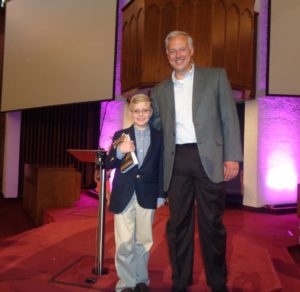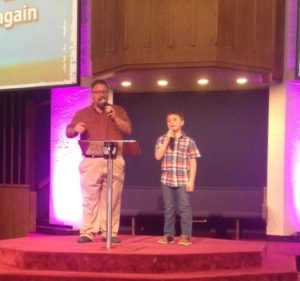 A text this morning from a friend wondered if I had developed some carpel tunnel issues. Yes, it’s been a while since I wrote in this space. No, it has nothing to do with the health of my fingers. I have been out of town three of the past four weeks — in Malibu for the Pepperdine Lectures, on a sabbatical in a nice apartment near the bottom of Ceta Canyon, and in Austin for the annual Sermon Seminar at Austin Grad. I even mixed in a weekend trip to Edmond for my nephew Asa’s high school graduation. So, I appreciate the concern for my physical well-being. Thank you. Consider me back in the groove.
A text this morning from a friend wondered if I had developed some carpel tunnel issues. Yes, it’s been a while since I wrote in this space. No, it has nothing to do with the health of my fingers. I have been out of town three of the past four weeks — in Malibu for the Pepperdine Lectures, on a sabbatical in a nice apartment near the bottom of Ceta Canyon, and in Austin for the annual Sermon Seminar at Austin Grad. I even mixed in a weekend trip to Edmond for my nephew Asa’s high school graduation. So, I appreciate the concern for my physical well-being. Thank you. Consider me back in the groove.
Yesterday marked our summer kickoff here at Central when all our 5th graders are officially promoted into the student ministry. The day is highlighted by the gifting of Bibles and blessings, lunch and a slide show, swimming and bowling, and an all-in youth meeting. But, for me, the best part of my Sunday was preaching with Tucker Haynes.
We’re a multi-generational church at Central and we are continuously on the lookout for creative ways to experience intergenerational relationships. We want to model and practice church as family. Christian community. Doing life together in Christ. So Sunday we had all of our incoming 6th graders participating in the leading of our worship assembly. Noah Hartman helped Kevin lead our singing. Several of the students read Scripture. And Tucker helped me preach.
The text was 1 Thessalonians 4:9-12: “Now about brotherly love…” Tucker worked especially hard the past two weeks on the Greek word for brotherly love, philadelphia, and what exactly Paul means when he tells the Christians in Thessalonica that God has already taught them how to love. And he nailed it! He and I went back and forth — me, trying to remember my memorized manuscript while Tucker read his expertly crafted lines. Tucker had the whole congregation eating out of his hand when he confessed frankly that “brothers and sisters can be annoying.” Then he pulled the rug out from under us with his observation that “We don’t get to pick our brothers and sisters; they are a gift from God.”
Oh, yeah. Central ate him up with a spoon. He was excellent!
 I really enjoyed my time with Tucker on Friday, finalizing together everything we were going to do. I asked him questions about the text and about his relationships with his older brother and sisters. I listened while he wrestled with using a personal illustration to both connect with the listeners and explain the text. We did a mic check together in the worship center early Sunday morning and prayed together in my office fifteen minutes before the assembly began — he was distracted by the 2011 World Series program on my table and couldn’t hardly pray for lamenting the Cardinals and Nelson Cruz.
I really enjoyed my time with Tucker on Friday, finalizing together everything we were going to do. I asked him questions about the text and about his relationships with his older brother and sisters. I listened while he wrestled with using a personal illustration to both connect with the listeners and explain the text. We did a mic check together in the worship center early Sunday morning and prayed together in my office fifteen minutes before the assembly began — he was distracted by the 2011 World Series program on my table and couldn’t hardly pray for lamenting the Cardinals and Nelson Cruz.
Tucker, you were terrific, brother. I’m so blessed by God that you and I are adelphus. And I’d be honored to preach with you any day.
Peace,
Allan









Recent Comments